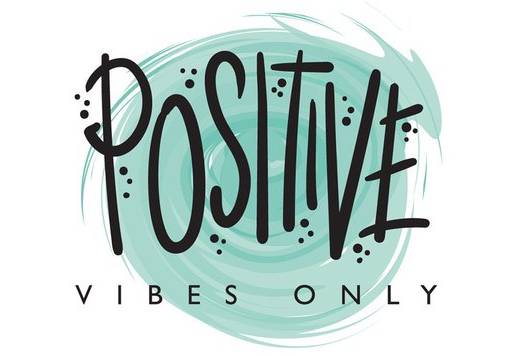
How to remain positive is a million-dollar question? The most sought after perhaps because negative occurrences arise on a regular basis. We won’t be able to avoid them, so how can we mitigate their bad impact on our lives and attitudes? Learning to harness the power of positive thought allows us to remain optimistic even in the face of adversity. Keep in mind that your attitude is entirely under your control. The first step toward remaining optimistic is to realise that no one has the authority to make you feel awful unless you give them permission. You can do it if you want to stay positive. Allowing yourself to feel like a victim of someone else’s negative attitude is a trap you should avoid.
Maintaining a good attitude provides physical and mental health benefits, but it can be difficult to keep a positive attitude when others are pessimistic. When confronted with negative people, the best method to keep a positive attitude is to stay focused on yourself and create a resilient mindset. When you’re with negative people for an extended period of time, you may need to remind yourself of this. In order to live a healthy lifestyle, you must learn how to be positive in the face of adversity.
How To be Positive amidst Negative Situations
1. Having a Positive Support Group
It is critical to create a positive support group that will assist each member in getting through difficult times. When you’re in a bad circumstance, surround yourself with good people to assist you to stay positive.
There are a lot of negative people out there, so stay away from them! Their bad attitudes will just depress you and will go against what you are attempting to accomplish by practising positive thinking.
2. Express Your Gratitude
Even in the darkest of circumstances, most of us recognise that there are still things in our life for which we are thankful. Count your blessings!
Practice gratitude (here’s how.) Talk to your closest friends, your support network, about the things you’re grateful for. Keep a gratitude diary to record your feelings of gratitude for what you have on a daily basis.
Even when unpleasant things happen, actively acknowledging what you’re grateful for will help you maintain a grateful mind and heart.
3. Retrain Your Mind
Do you have a habit of mentally berating yourself? Do you ever find yourself second-guessing your actions? Retrain your brain to quit punishing yourself in this way. The more you talk negatively to yourself, the more negative thoughts will become ingrained in your mind.
Instead, use the power of positive thinking to your advantage. Replace any negative thoughts with positive ones whenever they arise. As your brain learns to automatically shift a negative into a positive, this will become more natural.
Pay attention to what you’re thinking. Set a timer for various intervals and check to see if your thoughts are primarily positive or negative when it goes off. If it’s the latter, attempt to perceive the subject in a favourable light. It’s important to remember that building resilience takes time. With more practice, you’ll get better. Allow yourself to be patient.
4. Exercise Your Body And Mind
We all know that physical activity is beneficial to our bodies, but what about our minds? Yes, it is! It causes our brains to release natural endorphins, which make us feel better. Physical, mental, and emotional advantages all come from exercise. Getting out and exercising will improve your body’s condition while also enhancing your self-esteem for having the discipline to exercise.
You might incorporate yoga into your fitness routine from time to time to help you learn to focus and meditate more effectively. Exercise is a fantastic technique to combat the harmful impacts of adversity.
5. Every day, take some time to focus on yourself.
Make use of the opportunity to remind yourself of what you’re looking forward to that day when you wake up. Keep a thankfulness notebook or make a gratitude list.
Saying morning prayers or meditations, if you follow a spiritual tradition, may be beneficial.
If you’re more of a “night owl,” you can undertake this activity at night. Alternatively, you might perform some centring activities in the morning and others in the evening.
IfYouan return to your gratitude list, meditations, or other activities throughout the day if you need to.
6. Accept Change and Look for Solutions
Many of us are hesitant to change. We must learn to understand that change is unavoidable.
Have you heard that “changing is the only constant in life”? There is a lot of truth to that, as we are constantly changing, whether for the better or the worst. Accepting that change is a part of life might help us relax and accept it more readily. Try to see the bright side of things.
What do you do, for example, if you’re in a horrible job situation? Accept it and work to improve it? Possibly. Or perhaps this is your moment to make a career move and hunt for that job you’ve always wanted.
7. Concentrate on yourself.
You’ll be more likely to be dragged into the negativity of the negative individual if you focus all of your attention on them. You’ll be more likely to build a space between yourself and the other person if you focus on what you can do to regain your happiness. After all, you have no control over the other person, but you do have control over yourself.
If your aim is to maintain your own happiness, don’t be concerned about what the negative person may think of you. You won’t be able to change their minds, so don’t waste your time attempting to do so.

8. Value your own views and feelings
You won’t let a negative individual ignore your own thoughts if you pay attention to them. You’re less likely to be concerned about what others think of you if you learn to appreciate your own experiences. Instead, concentrate on the thoughts and opinions of positive people that you aspire to be like in your own life.
You’re unlikely to have time to pay attention to the unpleasant people around you if you’re immersed in the issues that interest you.
9. Incorporate a mantra or phrase into your practice
Some people use brief mantras as a spiritual tool, while others use mantras to help them relax when they’re stressed. When you’re around negative people, repeating a mantra to yourself can help you stay cheerful. [3] The slogan that each person finds important is particularly personal. Some people choose to chant religious words, while others prefer to use simple words or phrases.
10. Look for the good in everyone you come across.
It’s doubtful that a person has no excellent traits, no matter how bad she appears to be. Find ways to appreciate the features of the person you like rather than obsess over the aspects you don’t like.
Perhaps what appears to be negativity is actually dread and worry, as well as an opportunity to learn compassion.
Even being cordial and polite to a bad person may cause you to reconsider your opinion of him.
11. Try To avoid negative people
Seek out positive people, and try to spend as little time as possible with negative people. If you can’t avoid being around negative people, make an effort to meet with a group of people rather than just the two of you. Or else if you’re friends on social media, unfriending or unfollowing the unpleasant person’s postings is one approach to cut down on your interactions with them. At all if you have to attend events with a negative individual, try to maintain positivity. Take as many breaks as you need.
12. Discuss the problem with someone
Speaking with someone who can look at the problem from a different perspective may help you better comprehend the scenario. This can assist you in discovering new ways to stay positive, as well as provide information about the negative person’s attitude that may be useful to you.
It’s better if the person is unbiased – that is, not a bad person’s a buddy or a friend who is too close to you.
Some people find that talking to a therapist or counsellor is beneficial. If you’re continually surrounded by negative people, it’s possible that there’s something you can do about it in your own life.
13. Keep a record of your triggers.
Recognize what’s bugging you about a negative individual by being mindful of the factors that threaten your positivity. Take note of the things that make you feel bad, angry, or upset right away. It could be a specific remark about a difficult subject, or it could be something that reminds you of your mother’s criticism.
Gaining a better understanding of oneself will aid you in avoiding negativity traps.
You may find that the more you understand why you react negatively to these statements, the less they annoy you.
14. Do not spread rumours about others
Talking negatively about others is one of the numerous ways a negative person may try to engage you. Remember that you wouldn’t want someone else to talk about you in this way, and avoid these types of talks.
Redirect the conversation if someone tries to draw you in.
It’s fine to leave a conversation if you can’t change it. You can either make up an excuse to go or just explain that you don’t want to discuss it any further.
15. Negativity should be avoided
Don’t adopt someone else’s negative attitude. When you’re dealing with someone else’s negativity, focus on the positive aspects of the situation.
It makes no difference whether the negative person agrees with your point of view or not. It will benefit your own attitude if you don’t give a damn what the negative individual has to say!
Keep in mind that positivity is contagious, and your own mood could help your pessimistic friend.

16. Focus your attention on good things
Try focusing your attention on something that has gone well or that you are proud of.
Say nothing to yourself that you wouldn’t say to someone you care about. If you catch yourself doing this, stop and think about what you could say instead. Make an effort to be kind to yourself. Rather than acting as though you didn’t deserve a compliment, practise saying “Thank you.”
Check to see if you’re filtering out good information. Focusing on the bad aspects of a situation while ignoring the positive aspects is one of the most prevalent ways to engage in negative self-talk. You’re probably engaging in negative self-talk if your inner attention is preoccupied with what you’ve done wrong.
17. Have a good time laughing.
Possessing a good sense of humour is a sign of strength and optimism. Look for humour in everyday situations and come up with new ways to chuckle. It will be much simpler to be happy around negative individuals if you can laugh. Laughter begins with a refusal to take yourself too seriously.
You may even attempt “laughing yoga,” which blends yogic breathing with laughter. It’s being created as a way to promote playfulness, which is a key component of emotional intelligence and resilience. Simply smiling causes the neurotransmitter serotonin to be released, which makes you feel better.
18. Try to avoid passing judgement.
What you perceive as negativity may simply be someone expressing values that differ from your own. You might learn something new if you can listen to another person’s point of view with an open mind.
It’s possible that a bad attitude is a person’s way of showing concern.
When you approach another person’s point of view with interest, he will most likely reply in kind.
In life, everyone must face adversity. Adversity is a big aspect of our lives since it teaches us how to handle different situations.
19. Maintain a healthy way of living.
Emotional resilience requires staying physically strong, taking plenty of exercise, and eating a well-balanced diet. Exercising for at least 20-30 minutes three times a week will improve your mood and lower your stress level.
You’re less likely to be able to practise resilience if you’re hungry or exhausted.
A healthy lifestyle also includes getting enough sleep. Most people require 7-8 hours of sleep every night, whereas teenagers often require 9-10 hours.
20. Replace pessimistic and negative thoughts with positive ones
Recognize the thoughts that are running through your head. If you’re having negative thoughts, change your focus to something positive. You’ll almost certainly encounter internal opposition, and you might even forget to replace your negative ideas with positive ones. Nonetheless, keep practising this approach until it becomes second nature.
When confronted with a challenging or unpleasant situation, say a positive affirmation to yourself. That’s also a good idea to say it when you’re in a bad mood. This will help you focus on anything other than the problem and keep your spirits upbeat. On the Internet, you may find a variety of affirmations that are appropriate for various situations. You may transform your attitude and mental condition by repeating affirmations with faith and focus.
Affirmations are positive comments that can stimulate and encourage you, as well as affect your mood.
Some Habits That Will Help You Have Consistently Positive Inner Belief
It’s all too easy to get into a terrible attitude when someone you care about is depressed. It’s critical to be there for our friends, family, and partners when they’re going through a difficult time, especially if they’re going through something very terrible, such as the death of a loved one. On the other side, we all have at least one buddy who throws a huge pity party whenever they don’t feel good about themselves or the world.
It’s vital that we look after ourselves when our friends are down—no matter what the scenario is. When those close to you are in a bad mood, it might be difficult to take a step back emotionally, but once you’ve fallen into that black hole of negativity, fighting your way out can be much more difficult.

1. Learn how to focus your focus.
Develop willpower and self-discipline, and try not to take what others think or say about you personally. There’s no reason in the world for you to be hurt by their words and thoughts. You are the one who allows their words and thoughts to influence your emotions. People are frequently unaware that they are injuring you.
Avoid pondering what others have said and why they have said it. You may have misconstrued what they meant. Maybe they were joking, or maybe what they said had nothing to do with you. You must learn to let go of your rage, bitterness, and injured sentiments. With a small amount of emotional detachment, or letting go, this becomes feasible.
2. Maintain Cheerful Attitude
It is crucial to maintain a cheerful attitude even in the face of adversity. Positive thinking can not only make you happy in life, but it will also give you the strength to face practically any scenario with a grin on your face. There are persons who refuse to be affected by unpleasant conditions. Even when things are difficult, these people manage to keep a cheerful outlook. Unpleasant thinking should be avoided because we frequently encounter negative situations and people. Listening to the radio, watching TV, or reading the newspaper exposes us to unfavourable news on a regular basis. Negative energy can result from this. You may read my book How To Master Your Mind for further benefit towards positive thoughts.
3. Come out of Negativities
Negative situations, people, and news appear to be impossible to avoid. Is it possible to have a happy attitude in the face of adversity and not let it influence our thoughts and feelings? You will continue to attract and create unpleasant situations in your life if you keep thinking and focused on them. Strangely, if you continue thinking about unpleasant scenarios, challenges, or tragedies, your mind begins to anticipate them. This has an impact on your emotions and reactions. You may get more quickly irritated and agitated, as well as dissatisfied and depressed.
Negative thoughts are like lugging a huge rock behind you. It makes you feel helpless by slowing you down, weakening you. Developing a positive mindset is an alternative. In a difficult environment, you can learn to stay positive. This does, however, necessitate alertness, knowledge of your ideas, and some introspection. This is a simple task that is also enjoyable to complete. Get the Positive Thinking Tips for Staying Positive in Negative Situations eBook 1. When you’re tired and exhausted, it’s much easy to feel negative, dissatisfied, and unhappy. You must avoid overworking and exhausting yourself, as well as getting enough sleep and rest. Walking, swimming, basketball, bodybuilding, and whatever else you enjoy are all beneficial forms of exercise.
4. Make positive self-talk to yourself.
If you know you’ll be dealing with someone who is emotionally distressed, prepare yourself before you interact with them. Dow recommends giving yourself a pep talk before walking in—one that acknowledges that you will be confronted with this person, that they will be upset, and that you will choose not to take on their emotions. This will allow you to gain a better understanding of your friend’s predicament and offer you more control over whether or not to feel upset. Giving yourself a compliment can help to dispel negative self-doubt.
5. Get your friend’s mind off things.
If you’re stuck listening to your friends vent about their boss and how everything is going wrong for them, your first instinct could be to nod in agreement. However, Alpert proposes taking a different approach: let your friend vent for a few minutes before redirecting.
“If someone is always whining and you agree with them, you are supporting that habit, which may not be healthy,” Alpert explains. Offer an alternative approach to problem-solving, such as talking about what’s going well in their lives or a common interest.
Of course, this approach is only useful for little annoyances; if your buddy is going through a life-changing event, it’s best to let them talk about their feelings as much as they need to.
6. Define your limits.
“We can only provide so much to people,” Alpert says. “Make sure you’re taking care of yourself and that your needs are met.” It’s easy to lose sight of ourselves when we’re engrossed in the drama of our friends and loved ones. When you’re at your wit’s end with a friend, however, taking some time away may be the only way to save your friendship. Concentrate on other hobbies you enjoy or spend time with people you care about. “It’s not about being harsh or judgmental by not spending around with them”. “It’s self-care, and it’s ultimately each of our responsibilities to ourselves.”
7. Take a break from technology.
Being always linked has its drawbacks, and if you’re dealing with your BFF’s concerns at 11 p.m., you’re asking for trouble. Until you feel better, try shutting off your phone, uninstalling social media apps, or even cancelling accounts. “If you don’t take a break, your brain and body are constantly exposed to high-stress situations, and persistent stress can lead to illness.
8. Demonstrate thankfulness.
Appreciating what you have is the first step toward a positive mindset. In fact, a University of Miami study discovered a relationship between appreciation and happiness. Two groups wrote about their lives every day: one concentrated on things they were grateful for, while the other focused on their irritations. After ten weeks, the individuals who wrote about appreciation felt happier and more positive about themselves than the group who focused on griping. Gratitude, like negativity, spreads: another study discovered that couples who showed gratitude for one another had more loving, trustworthy relationships.
9. Make an effort to be kind to yourself.
We are our worst critics, and when we’re in a terrible mood, we can’t help but berate ourselves. Giving yourself a compliment can help to dispel negative self-doubt. “Positive attention helps promote our positive thinking”.

11. Reframe your ideas.
Try looking at the big picture if you find yourself using a lot of negative languages and putting yourself down. According to Alpert, “repeating negative storylines will really put someone in a funk.” So be gentle with yourself—and adjust the storey.
12. Consider whether or not you want this person in your life.
No one wants to split up with a buddy, but if they’re bringing a lot of negativity into your life—or if you feel they’re toxic—you should reconsider spending out with them. It’s an extreme situation, but it’s essential at times. Determine how vital it is to keep this friendship and how much it means to you.
Note: Contact our Writers at www.eastsidewriters.com for writing Blogs/Articles on any niche. We have experts in various domains from Technology to Finance and from Spirituality to Lifestyle and Entertainment.
Originally posted 2021-08-24 04:20:10.







He Makes Money Online WITHOUT Traffic!
Most people believe that you need traffic to profit online…
And for the most part, they’re right!
Fact is.. 99.99% of methods require you to have traffic.
And that in itself is the problem..
Because frankly, getting traffic is a pain in the rear!
Don’t you agree?
That’s why I was excited when a good friend told me that he was profiting, but with ZERO traffic.
I didn’t believe him at first…
But after he showed me the proof, it’s certainly the real deal!
I’m curious what your thoughts are.
Click here to take a look >> https://bit.ly/3mOAfVp
Please view it before it’s taken down.
Pingback: How To Stay Energised and Happy Throughout the Day
Pingback: Unlocking Holistic Growth Through The Power Of Seva-The Art Of Selfless Service - Eastside Writers